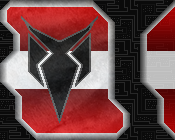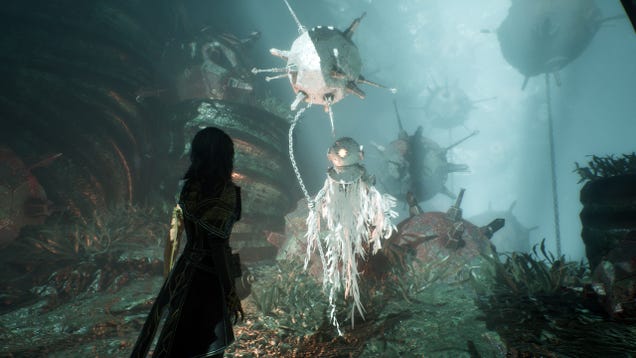






 Posted by msmash from Slashdot
Posted by msmash from Slashdot
From the flywheel-effect department: Google's expansion of Gemini's data access through "personal context" represents a fundamental shift in how AI assistants operate. Unlike competitors that start from scratch with each new user, Gemini can immediately tap into years of accumulated user data across Google's ecosystem. The Verge adds: Google first started letting users opt in to its "Gemini with personalization" feature earlier this year, which lets the AI model tap into your search history "to provide responses that are uniquely insightful and directly address your needs." But now, Google is taking things a step further by unlocking access to even more of your information -- all in the name of providing you with more personalized, AI-generated responses.
During Google I/O on Tuesday, Google introduced something called "personal context," which will allow Gemini models to pull relevant information from across Google's apps, as long as it has your permission. One way Google is doing this is through Gmail's personalized smart replies -- the AI-generated messages that you can use to quickly reply to emails.
To make these AI responses sound "authentically like you," Gemini will pore over your previous emails and even your Google Drive files to craft a reply tailored to your conversation. The response will even incorporate your tone, the greeting you use the most, and even "favorite word choices," according to Google.







 Posted by msmash from Slashdot
Posted by msmash from Slashdot
From the fighting-back department: BrianFagioli writes: Signal has officially had enough, folks. You see, the privacy-first messaging app is going on the offensive, declaring war on Microsoft's invasive Recall feature by enabling a new "Screen security" setting by default on Windows 11. This move is designed to block Microsoft's AI-powered screenshot tool from capturing your private chats.
If you aren't aware, Recall was first unveiled a year ago as part of Microsoft's Copilot+ PC push. The feature quietly took screenshots of everything happening on your computer, every few seconds, storing them in a searchable timeline. Microsoft claimed it would help users "remember" what they've done. Critics called it creepy. Security experts called it dangerous. The backlash was so fierce that Microsoft pulled the feature before launch.
But now, in a move nobody asked for, Recall is sadly back. And thankfully, Signal isn't waiting around this time. The team has activated a Windows 11-specific DRM flag that completely blacks out Signal's chat window when a screenshot is attempted. If you've ever tried to screen grab a streaming movie, you'll know the result: nothing but black.







 Posted by BeauHD from Slashdot
Posted by BeauHD from Slashdot
From the terminal-decline department: An anonymous reader quotes a report from The Guardian: "Do not use semicolons," wrote Kurt Vonnegut, who averaged fewer than 30 a novel (about one every 10 pages). "All they do is show you've been to college." A study suggests UK authors are taking Vonnegut's advice to heart; the semicolon seems to be in terminal decline, with its usage in English books plummeting by almost half in two decades -- from one appearing in every 205 words in 2000 to one use in every 390 words today. Further research by Lisa McLendon, author of The Perfect English Grammar Workbook, found 67% of British students never or rarely use the semicolon. Just 11% of respondents described themselves as frequent users.
Linguistic experts at the language learning software Babbel, which commissioned the original research, were so struck by their findings that they asked McLendon to give the 500,000-strong London Student Network a 10-question multiple-choice quiz on the semicolon. She found more than half of respondents did not know or understand how to use it. As defined by the Oxford Dictionary of English, the semicolon is "a punctuation mark indicating a pause, typically between two main clauses, that is more pronounced than that indicated by a comma." It is commonly used to link together two independent but related clauses, and is particularly useful for juxtaposition or replacing confusing extra commas in lists where commas already exist -- or where a comma would create a splice. The Guardian has a semicolon quiz at the end of the article where you can test your semicolon knowledge.







 Posted by BeauHD from Slashdot
Posted by BeauHD from Slashdot
From the future-aviation department: Wisk Aero and NASA have signed a new five-year partnership to advance the safe integration of autonomous, all-electric aircraft into U.S. airspace, focusing on urban air mobility and regulated eVTOL flight. Electrek reports: Wisk Aero shared details of its refreshed partnership with NASA this week. The autonomous aviation specialist has signed a new five-year Non-Reimbursable Space Act Agreement (NRSAA) with the renowned space administration. Per Wisk, this new agreement focuses on critical research led by NASA's Air Traffic Management Exploration (ATM-X) project, which is centered around the advancement of commercialized autonomous aircraft travel under Instrument Flight Rules (IFR) in the National Airspace System (NAS).
As a specialist in autonomous, zero-emission aircraft, Wisk intends to continue its research alongside NASA to help regulators determine future eVTOL flight procedures and capabilities in the US. Regulatory developments on the to-do list for the latest NRSAA include optimizing airspace and route designs for highly automated UAM operations, establishing critical aircraft and ground-based safety system requirements for autonomous flight in urban environments, and establishing Air Traffic Control (ATC) communication protocols and procedures for seamless integration of future UAM aircraft. To achieve these goals, Wisk said its research with NASA will more specifically focus on utilizing advanced simulation and Live Virtual Constructive (LVC) flight environments, which combine live flights with a simulated airspace to enable researchers to assess future operations.
< This article continues on their website >







 Posted by BeauHD from Slashdot
Posted by BeauHD from Slashdot
From the hide-and-seek department: Scientists have discovered a previously unknown bacterium aboard China's Tiangong space station. "It has been named Niallia tiangongensis, and it inhabited the cockpit controls on the station, living in microgravity conditions," reports Wired. From the report: According to China Central Television, the country's national broadcaster, taikonauts (Chinese astronauts) collected swab samples from the space station in May 2023, which were then frozen and sent back to Earth for study. The aim of this work was to investigate the behavior of microorganisms, gathered from a completely sealed environment with a human crew, during space travel, as part of the China Space Station Habitation Area Microbiome Program (CHAMP). A paper published in the Journal of Systematic and Evolutionary Microbiology describes how analysis of samples from the space station revealed this previously unseen bacterial species, which belongs to the genus Niallia. Genomic sequencing showed that its closest terrestrial relative is the bacterium Niallia circulans, although the Tiangong species has substantial genetic differences. [...]
It is unclear whether the newly discovered microbe evolved on the space station or whether it is part of the vast sea of as yet unidentified microorganisms on Earth. To date, tens of thousands of bacterial species have been cataloged, although there are estimated to be billions more unclassified species on Earth. The discovery of Niallia tiangongensis will provide a better understanding of the microscopic hazards that the next generation of space travelers will face and help design sanitation protocols for extended missions. It is still too early to determine whether the space bacterium poses any danger to taikonauts aboard Tiangong, although it is known that its terrestrial relative, Niallia circulans, can cause sepsis, especially in immunocompromised people.



 RPG fans love their Collector’s Editions, but few guessed just how big or good Clair Obscur: Expedition 33 would turn out to be, including its own developers. The result was that a very limited set of physical releases, including Collector’s Editions exclusive to certain retailers, immediately vanished from store…
RPG fans love their Collector’s Editions, but few guessed just how big or good Clair Obscur: Expedition 33 would turn out to be, including its own developers. The result was that a very limited set of physical releases, including Collector’s Editions exclusive to certain retailers, immediately vanished from store…

 Way back in 2019, Blizzard confirmed that Soldier: 76, Overwatch’s grumpy grandpa, is a member of the queer community. The titular organization’s ex-commander, whose real name is Jack Morrison, is gay and was involved with a man named Vincent many years before the events of the game. This was revealed in a short story…
Way back in 2019, Blizzard confirmed that Soldier: 76, Overwatch’s grumpy grandpa, is a member of the queer community. The titular organization’s ex-commander, whose real name is Jack Morrison, is gay and was involved with a man named Vincent many years before the events of the game. This was revealed in a short story…
 The general gameplay loop of Monster Hunter Wilds is using cool weapons to fight strong monsters—and then using their parts to make even cooler weapons to fight even stronger monsters. That cycle likely doesn’t have many hitches until you have to wrestle with Zoh Shia. While their debut hunt can be a strong wall, the…
The general gameplay loop of Monster Hunter Wilds is using cool weapons to fight strong monsters—and then using their parts to make even cooler weapons to fight even stronger monsters. That cycle likely doesn’t have many hitches until you have to wrestle with Zoh Shia. While their debut hunt can be a strong wall, the…
 In Clair Obscur: Expedition 33, you’ll come across quests where you can help out the expedition’s enemies, Nevrons. While most Nevrons are hostile, there are a few that’ll ask for help. One early Nevron quest takes place in the Flying Waters dungeon with a fellow named Demineur.
In Clair Obscur: Expedition 33, you’ll come across quests where you can help out the expedition’s enemies, Nevrons. While most Nevrons are hostile, there are a few that’ll ask for help. One early Nevron quest takes place in the Flying Waters dungeon with a fellow named Demineur.
 GeoGuessr will not be one of the games participating in Saudi Arabia’s Esports World Cup this year, after criticisms of sportswashing and the country’s poor human rights record. The competitive guessing game that’s popular on Twitch had previously agreed to be part of the event alongside Riot, Blizzard, and other game…
GeoGuessr will not be one of the games participating in Saudi Arabia’s Esports World Cup this year, after criticisms of sportswashing and the country’s poor human rights record. The competitive guessing game that’s popular on Twitch had previously agreed to be part of the event alongside Riot, Blizzard, and other game…
 Bucky, AKA: The Winter Soldier, is one of the most powerful characters in Marvel Rivals, and he gets more powerful the better you play. If you believe in yourself and want to see how far skill can take you, Bucky is an incredible choice. He fits in virtually every team composition and has an incredibly well-rounded…
Bucky, AKA: The Winter Soldier, is one of the most powerful characters in Marvel Rivals, and he gets more powerful the better you play. If you believe in yourself and want to see how far skill can take you, Bucky is an incredible choice. He fits in virtually every team composition and has an incredibly well-rounded…
 Developer Mercury Steam is perhaps best known for 2010’s Castlevania: Lords of Shadow and, more recently, Metroid Dread. The studio’s newest game, Blades of Fire, is a tough action-adventure RPG with Soulslike elements and a surprisingly in-depth weapon-forging mini-game.
Developer Mercury Steam is perhaps best known for 2010’s Castlevania: Lords of Shadow and, more recently, Metroid Dread. The studio’s newest game, Blades of Fire, is a tough action-adventure RPG with Soulslike elements and a surprisingly in-depth weapon-forging mini-game.

 We all know there is no Mission: Impossible without Ethan Hunt (Tom Cruise) ultimately saving the world from a nuclear disaster, a bombing, or anything some nutcase came up with that day. He is the central figure with which an entire universe revolves around. But, it would be a shame if you watched years of Mission:…
We all know there is no Mission: Impossible without Ethan Hunt (Tom Cruise) ultimately saving the world from a nuclear disaster, a bombing, or anything some nutcase came up with that day. He is the central figure with which an entire universe revolves around. But, it would be a shame if you watched years of Mission:…

